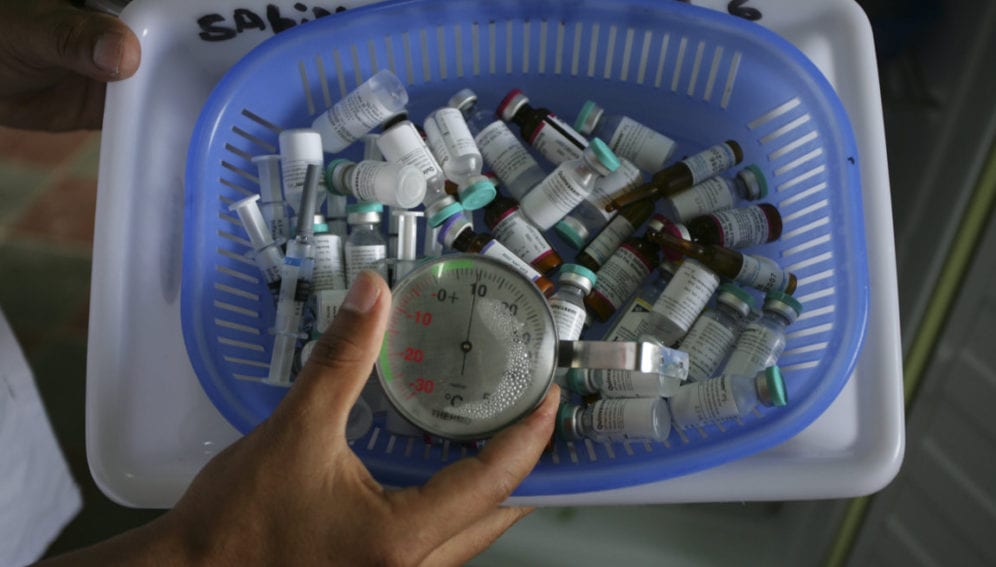By: Joris Tielens
Send to a friend
The details you provide on this page will not be used to send unsolicited email, and will not be sold to a 3rd party. See privacy policy.
The World Health Organization has called for the disclosure of all results from the clinical trials of new medicines, regardless of their success, to increase transparency in the drug innovation process.
The move follows the publication of several scientific studies showing that the results of many clinical trials are never published, especially if they fail to demonstrate that a medicine has a beneficial impact. This leads to money being wasted through research duplication, supporters of the initiative say.
“Drug development is a long-term business. Publishing data doesn’t automatically mean an advantage for competitors.”
Manica Balasegaram, medical charity Médecins Sans Frontières (MSF)
Vasee Moorthy, coordinator of the WHO initiative and joint author of an article on the rationale behind the call published in PLOS Medicine last week (14 April), says researchers have a “social, scientific and ethical obligation” to publish all the results of clinical trials.
Lack of access to clinical trials data can hinder the development of drugs and vaccines in and for developing countries, as trials of the same compounds have to start from scratch and thus become more costly.
A 2014 study in the British Medical Journal looked at randomised controlled trials of vaccines and showed that only 29 per cent of trials had been published in a peer-reviewed journal after two years, and 16 per cent were never reported.
Another study, published in the New England Journal of Medicine in March and covering more than 13,000 US clinical trials, found that only 13 per cent reported results within 12 months of trial completion. Furthermore, none of the trial administrators were fined, despite the US Food and Drug Administration being entitled since November to issue fines of US$10,000 dollars a day for non-reporting of results.
Such non-reporting causes delay in developing drugs and vaccines and affects decision making on international health interventions, Moorthy says.
The April statement is not the WHO’s first on this topic: it issued a similar call ten years ago, which resulted in the creation of its International Clinical Trials Registry Platform. But this initiative remains voluntary, and registered firms are not obliged to publish data after clinical trials are completed.
This is why the WHO needs to do more than issue a statement it wants to increase the disclosure of results, says Manica Balasegaram, the executive director of a campaign run by medical charity Médecins Sans Frontières (MSF) that calls for broader access to medical treatments. “We should take this more seriously and enforce it by law and regulations if needed,” he says.
Balasegaram wants the WHO to take the lead on this but adds that, in the end, it will be up to member states to enforce such laws.
MSF’s Access Campaign, run by Balasegaram, pushes for the development of drugs, tests and vaccines that would save many lives in poor countries. According to the campaign, those funding such research might not want to publish the results of negative clinical trials in the hope of keeping competitors in the dark about what does and does not work in a potential new drug.
But Balasegaram refuses to accept this as an adequate reason for companies failing to report results. “Drug development is a long-term business. Publishing data doesn’t automatically mean an advantage for competitors,” he says. “Once a drug or vaccine is registered and on the market, all data can be published.”
References
Vasee S. Moorthy and others Rationale for WHO's new position calling for prompt reporting and public disclosure of interventional clinical trial results (PLOS Medicine, 14 April 2015)
Lamberto Manzoli and others Non-publication and delayed publication of randomized trials on vaccines: survey (British Medical Journal, 16 May 2014)
Monique L. Anderson and others Compliance with results reporting at ClinicalTrials.gov (The New England Journal of Medicine, 12 March 2015)














